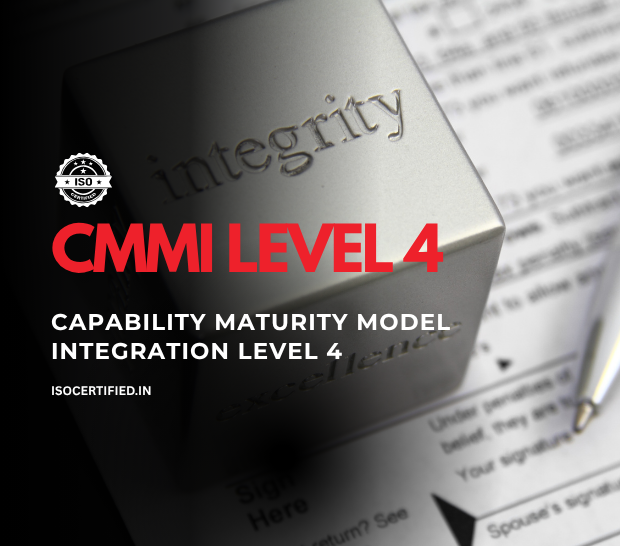- Globally Recognized Certification
CMMI Level 4 - Capability Maturity Model Integration Level 4
CMMI Level 3 Certification validates defined and standardized processes that are consistently applied across the organization with established procedures, tools, and methods. This certification demonstrates organizational process maturity through documented standards, proactive management, and institutionalized best practices across all projects.
Request A Free Quote
What is CMMI Level 3 – Capability Maturity Model Integration Level 3 Certification
CMMI Level 3 Certification represents defined process maturity where organizations have established standard processes that are documented, understood, and consistently followed across all projects and organizational units. This certification requires implementation of process areas including Requirements Development, Technical Solution, Product Integration, Verification, Validation, Organizational Process Focus, Organizational Process Definition, and Organizational Training. Level 3 organizations maintain organizational process assets, provide comprehensive training programs, and tailor standard processes appropriately for individual projects while maintaining process integrity and measurable outcomes.
The certification demands comprehensive process documentation, defined roles and responsibilities, integrated project management approaches, and systematic process improvement mechanisms. Organizations must demonstrate that processes are proactive rather than reactive, with emphasis on understanding relationships between process activities and implementing risk management throughout project lifecycles. CMMI Level 3 establishes organizational infrastructure supporting consistent execution, knowledge sharing, and continuous learning, transforming ad-hoc practices into repeatable, scalable methodologies that enable growth and quality delivery.

- Benifits
Key Benefits of CMMI Level 3 Certification Short Description
This certification standardizes organizational processes, improves project consistency, enhances training effectiveness, and demonstrates process discipline that attracts quality-conscious clients and enables scalable business growth.
Process Standardization Achievement
Establish consistent practices across projects eliminating variability, reducing errors, and ensuring predictable quality regardless of team composition.
Organizational Scalability Enablement
Support business growth through documented processes that enable rapid onboarding, knowledge transfer, and replication of successful practices across teams.
Enhanced Client Confidence
Demonstrate mature organizational capabilities that assure clients of reliable delivery, reduced project risks, and consistent quality outcomes.
Improved Resource Utilization
Optimize workforce productivity through standardized training, clear role definitions, and efficient process execution reducing rework and waste.
- Standard Process
Your Path to ISO Certification
Four straightforward steps to achieve ISO certification: consultation, documentation, payment, and certificate delivery—all managed remotely for your convenience.
Free Consultation
Connect with our ISO experts to discuss your certification needs and requirements.
E-mail Documents
Submit your organization's documents and information securely via email.
Make Payment Online
Complete your payment conveniently through our secure online payment gateway.
Get ISO Certificate
Receive your internationally recognized ISO certification upon successful audit completion.
- Which Industries?
Who Needs This
Mid-sized to large software companies, IT service providers, product development firms, and organizations seeking government contracts require CMMI Level 3 certification. Companies scaling operations and establishing process discipline for consistent delivery benefit substantially.
Software Product Development
IT Consulting & Services
Application Development & Maintenance
Technology Outsourcing Services
- Ongoing Requirements
Compliance & Maintenance
Post-certification, organizations must fulfill ongoing requirements including annual surveillance audits, internal reviews, and recertification to maintain their ISO certificate validity.
Annual Surveillance Audits
Certification bodies conduct yearly audits to verify continuous compliance with ISO standards and ensure your management system remains effective and up-to-date.
Recertification Every 3 Years
Complete recertification audit required every three years to renew your ISO certificate and demonstrate sustained commitment to quality management excellence.
Internal Audits & Reviews
Regular internal audits and management reviews must be conducted to monitor performance, identify improvements, and prepare for external certification audits.
Documentation & Training Updates
Maintain current documentation, update procedures for process changes, and provide ongoing training to employees on ISO requirements and their responsibilities.
